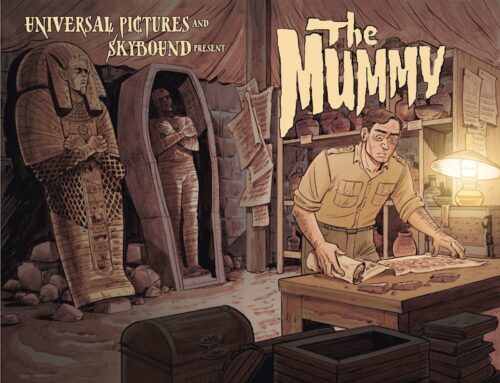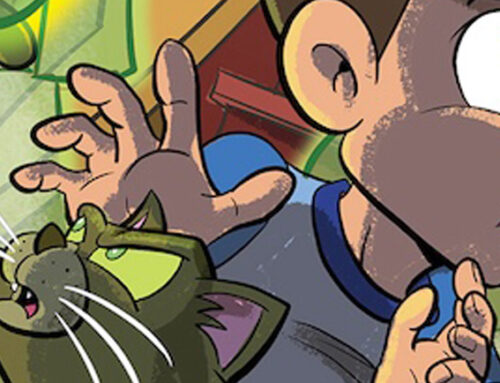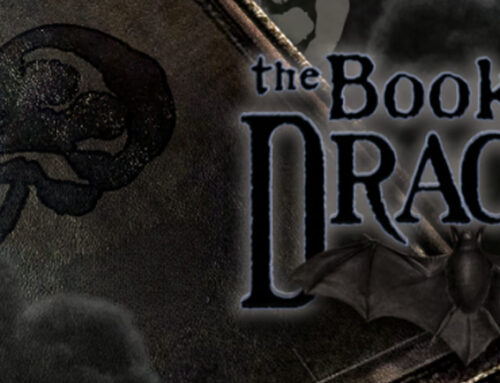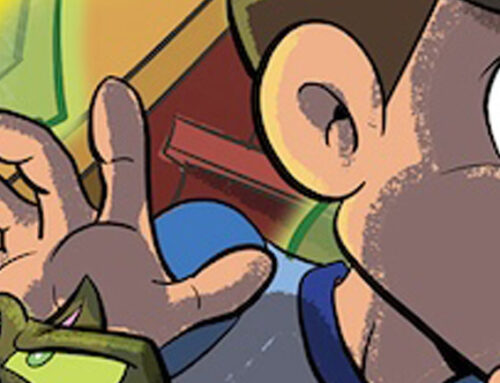Following the untimely death of her husband, Kris Barlow and her daughter Sadie escape their daily lives to the small town of Pacington, Kansas and the lake house of Kris’ youth. Kris is forced to confront her own demons while attempting to guide Sadie through the same grief she experienced as a child, but is unprepared to face the evil which has taken root in the town.
Loss is a fear that almost everyone is familiar with, but which is interestingly underutilized in horror fiction. That’s not to say that loss isn’t present in the genre, it’s arguably ingrained in any piece of horror media involving death (read: almost all of them), but that it isn’t often an object of focus– loss and the cornucopia of emotions which accompany it usually exist as a background concern or a mechanism with which to drive the plot. This may be because truly examining those feelings and the way we interact with them is frightening in a way which goes beyond most monsters, human or otherwise. See Hereditary, which is the exception that proves the rule: the movie was very matter of fact about the loss of family and how we react to it, and was all the more impactful for approaching that subject matter. In Violet, Scott Thomas approaches the same subject matter in the same unflinching way. But does this new novel from the celebrated author of Kill Creek deliver the right amount of impact and insight into the human condition?
is a fear that almost everyone is familiar with, but which is interestingly underutilized in horror fiction. That’s not to say that loss isn’t present in the genre, it’s arguably ingrained in any piece of horror media involving death (read: almost all of them), but that it isn’t often an object of focus– loss and the cornucopia of emotions which accompany it usually exist as a background concern or a mechanism with which to drive the plot. This may be because truly examining those feelings and the way we interact with them is frightening in a way which goes beyond most monsters, human or otherwise. See Hereditary, which is the exception that proves the rule: the movie was very matter of fact about the loss of family and how we react to it, and was all the more impactful for approaching that subject matter. In Violet, Scott Thomas approaches the same subject matter in the same unflinching way. But does this new novel from the celebrated author of Kill Creek deliver the right amount of impact and insight into the human condition?
The short answer is yes. Mostly. It’s immediately apparent that Thomas is an excellent writer, as his description of Kris’ trip to the morgue to identify her late husband is somehow both grisly and detached. The gore feels visceral and real and the clinical approach to the scene lays the foundation for both the author’s style and Kris’ relationship with the deceased. There’s a lot to unpack right away, which would be easy to bungle but is instead presented organically and engages the reader well.
However, we then encounter what I found to be the novel’s only real flaw: the pacing in the first half of the book is far too slow. I appreciate slow burn horror and a slow pace was definitely the right choice to an extent, as the first two hundred some odd pages are dedicated solely to setting up the slow deterioration of the protagonists’ mental states. The problem is that two hundred pages is a lot of time to spend on build up, and even though nearly every scene felt necessary there are several which could have been a bit shorter and would still have offered enough relevant information to the plot. There are bits of foreshadowing sprinkled through the first half, but there’s only so much home improvement and hush-hush small town setup one can take before it gets repetitive. I honestly feel that around fifty pages could have been trimmed here and Violet would be better overall for it.
This is a real shame, as around page two hundred and twenty the book accelerates forward again– that visceral feeling of the first few chapters comes back with a vengeance and doesn’t let up until the very end. Nearly everything which was set up is resolved well, and we’re left with a stark lesson about moving on from tragedy– bad things happen, and it’s much better for us to remember and come to peace with them than to bury our feelings and try to forget our negative experiences.
There are two elements of the story I really loved. I found the flashbacks in the second half of the book, which examine the relationship between Kris and her parents as her mother slowly and excruciatingly dies of cancer, masterful. These scenes are absolutely horrifying and are, in my opinion, worth the price of admission on their own despite their relative infrequency. I also loved the way Thomas uses several voices to characterize the different parts of Kris’ subconscious. These different voices, especially the one which gives voice to the character’s most negative and sometimes monstrous thoughts, are instantly relatable. These are the things we think to ourselves fleetingly and chastise ourselves for thinking at all– the horrible and selfish thoughts which we so deeply bury that even reading them on the page feels taboo. “Shadow Kris” is fearful because she’s almost too real.
Overall, there’s a lot to love about Violet. It’s an emotional powerhouse which manages to be truly haunting in several places. Unlike the majority of long-form horror, the ending sticks the landing and the resolution doesn’t feel overly contrived. I only wish the first half wasn’t quite so ponderous. As such, I definitely recommend Violet to fans of literary horror, but I’m afraid that those who aren’t a fan of slow burns or who aren’t necessarily looking to appreciate the quality of the writing on display may find this one hard to push through. A fast and twisty spook house this is not, but if you’re a fan of creeping dread, emotional insight, and richly developed main characters, this will be right up your alley.
Violet releases September 24, 2019 digitally and in paperback.







